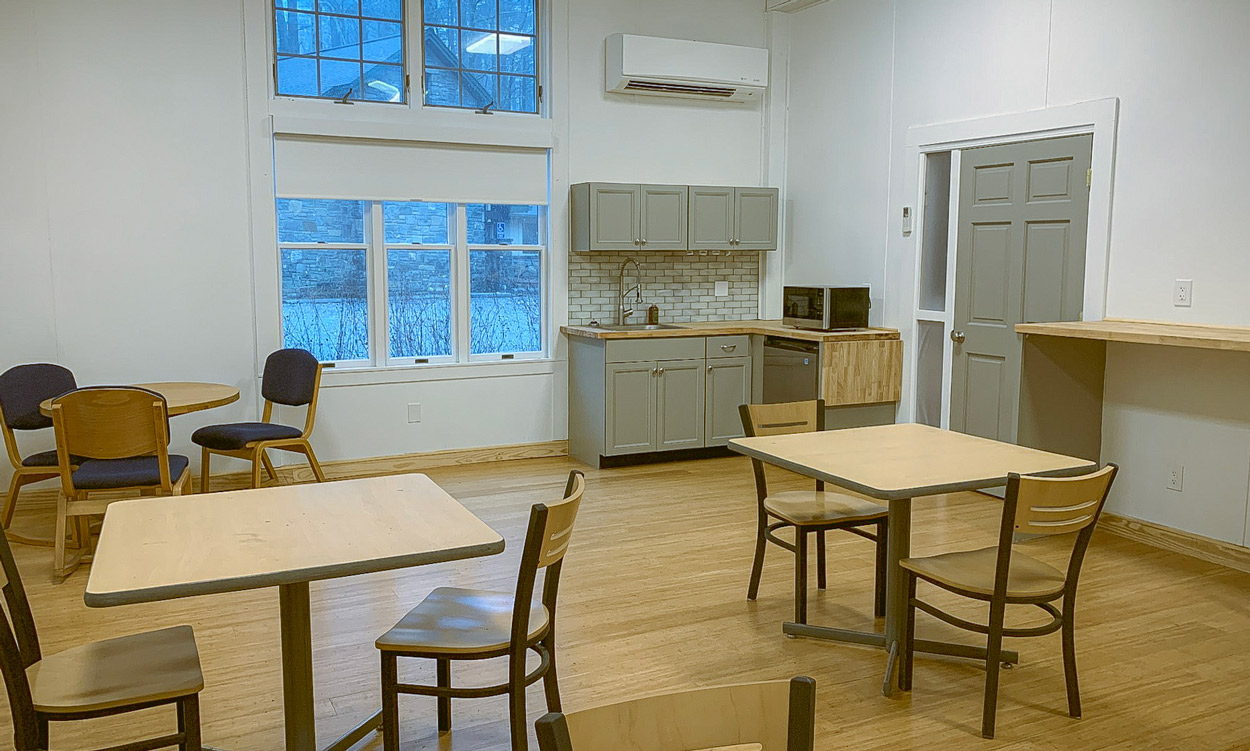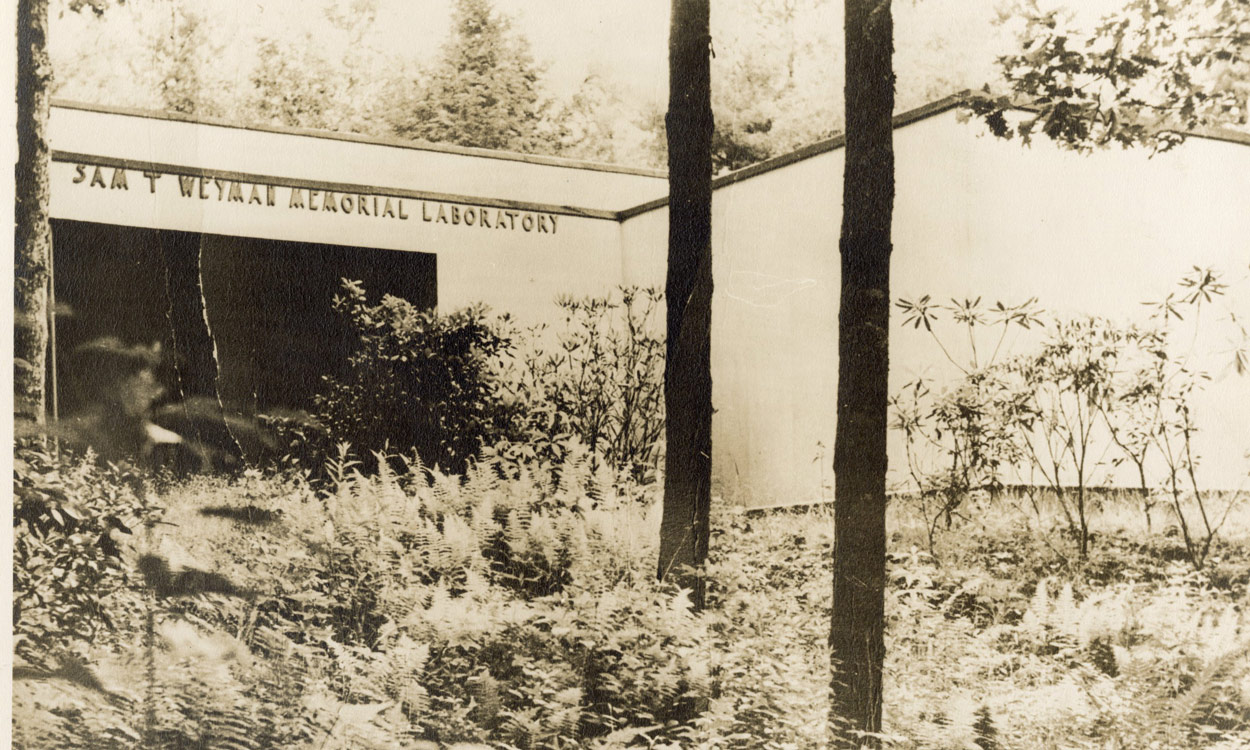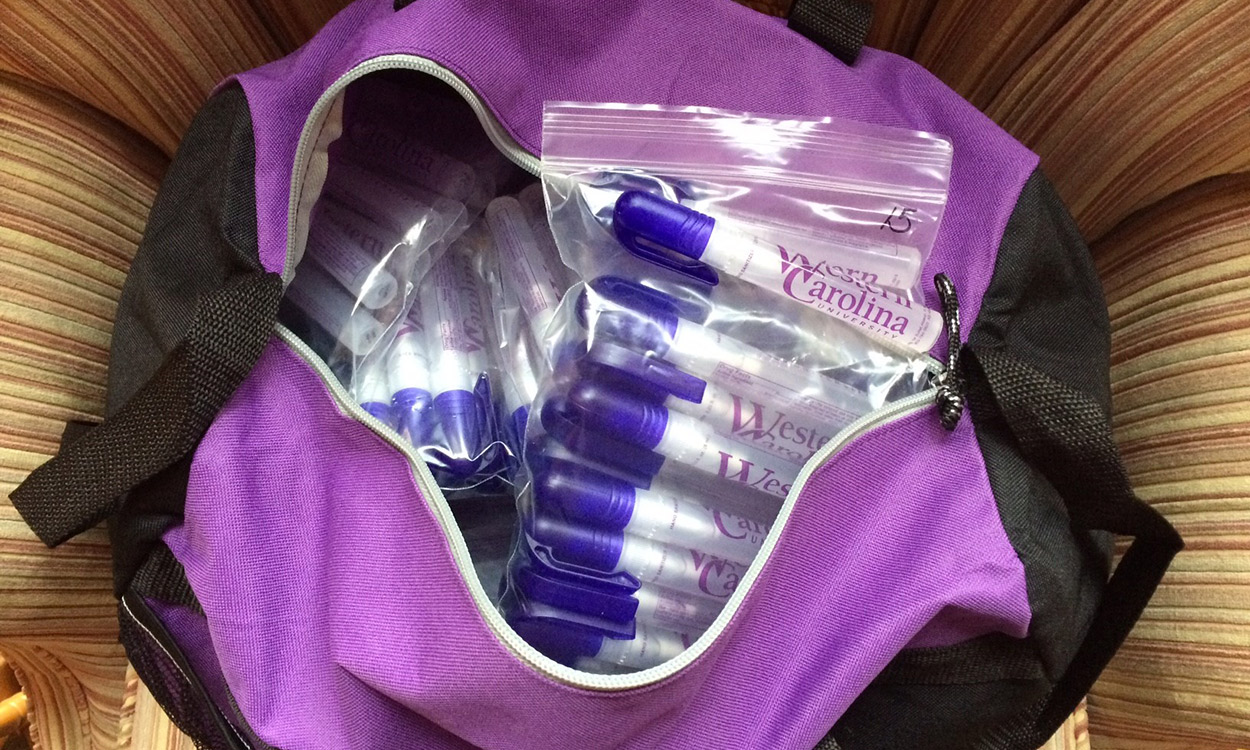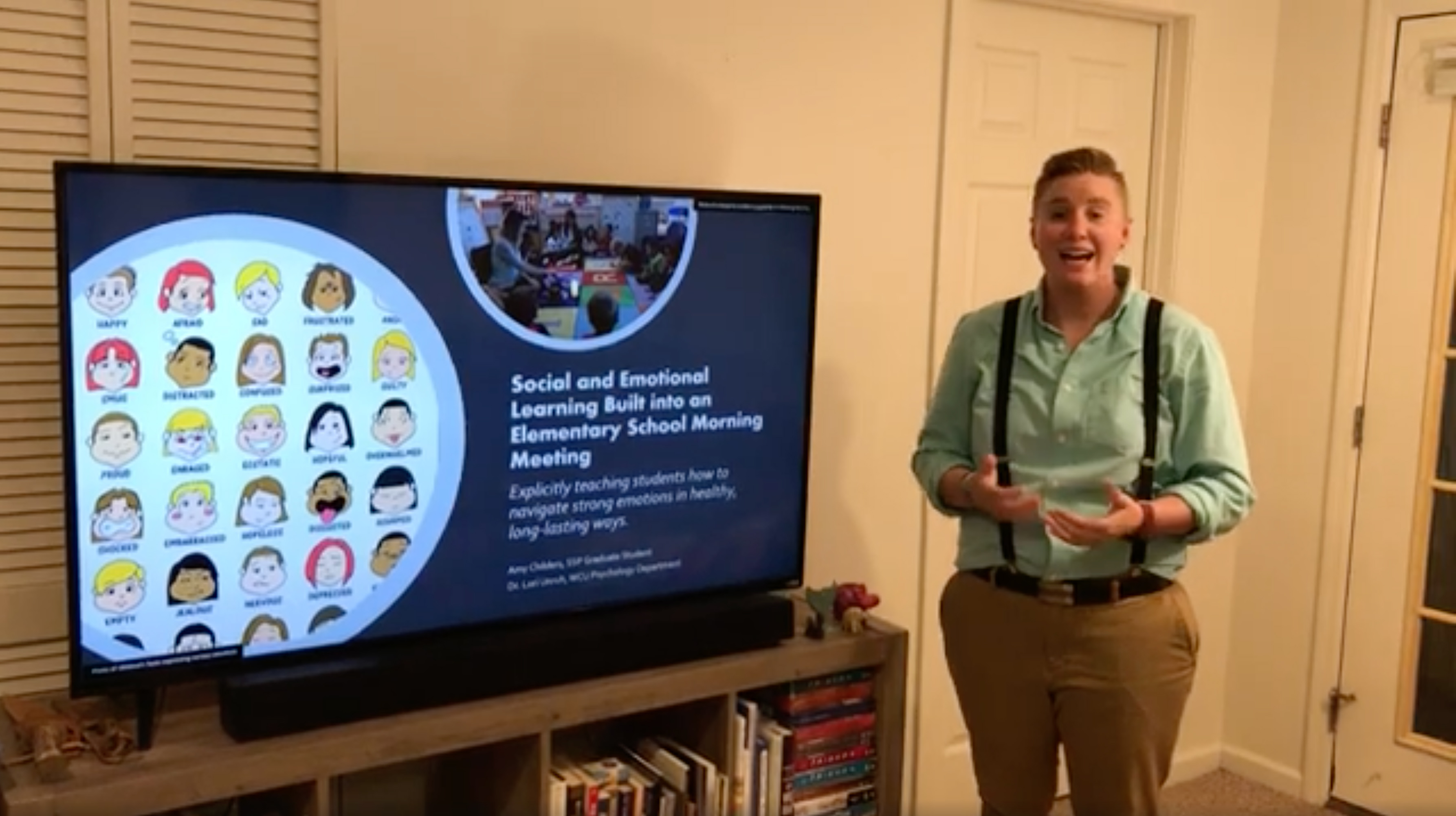Highlands Biological Station receives $150,000 gift to continue renovation of historic building

A recent gift is helping renovate the interior of the Weyman Laboratory Building at the Highlands Biological Station.
By Bill Studenc
A nearly 100-year-old building at Western Carolina University’s Highlands Biological Station is receiving a new lease on life thanks in part to a recent contribution of $150,000 from a Highlands resident with deep family connections to the internationally known research center focused on the biodiversity of the southern Appalachians.
The December donation from Robert B. Haynes via the Haynes-Eskrigge Fund of the Community Foundation of Western North Carolina will be used to help complete renovations to the Highlands Biological Station’s Samuel Weyman Laboratory Building, built in 1931 as the center’s first research facility. The building was originally funded by a donation by New York banker Clark Williams, among the station’s first benefactors, in honor of his late friend Samuel Weyman of Atlanta.
The Weyman Building was repurposed as a dining hall in the late 1950s after the completion of the Coker Laboratory Building, which provided a newer and larger research facility. Additional upgrades over the years have set the stage for yet another use for the Weyman Building, said James Costa, executive director of the Highlands Biological Station and professor of biology at WCU.
“Our strategic plan has long called for repurposing the building yet again, once we completed the new group kitchen and dining room at the Cottages residences, enabling us to retire the ‘dining hall’ function. That new space opened a couple of years ago, and we then set our sights on improvements to Weyman,” Costa said.
“The building was envisioned in our strategic plan to become a sort of ‘commons’ or ‘Station center,’ somewhat analogous in function to the Hinds University Center on the campus at Western – a central gathering and meeting space,” he said.
The latest round of improvements began last year with the installation of new insulation, efficient heating and lighting, updated flooring, a new kitchenette, fresh coats of paint, and the addition of a digital projector, screen and other items.
“Mr. Haynes’ donation will help us with the next phase, including a new deck, furnishings and more,” Costa said. “The idea is to create an inviting and comfortable meeting, gathering and informal learning space. We want to encourage a diverse group of folks — Highlands Biological Station staff, students, faculty, researchers, volunteers and others — to meet, mix, relax, interact, attend brown-bag lunchtime talks and more.”
Costa characterized the current round of renovations as mechanical and cosmetic in nature, not affecting the building’s original architecture. The building was designed by the noted architect Oscar Stonerov of Philadelphia and was acclaimed for its innovative, modern design.

Historical image of the Samuel Weyman Laboratory Building at the Highlands Biological Station.
“Weyman is a historic building,” Costa said. “The original design won architectural awards back in the day. Even though the renovations of the late 1950s undermined that, it’s still a historic space to us. We want to preserve as much of that as we can.”
The recent contribution of $150,000 represents the latest gift from Haynes through the Haynes-Eskrigge Fund to the Highlands Biological Station. He previously made gifts of $37,500 and $15,000 in 2021, for a total of $202,500 to date. Those earlier donations helped the station purchase a hydraulic trailer used for grounds maintenance, a pickup truck and a new printer-engraver for signage and labels, and provided funding for several other projects, Costa said.
Haynes is a former member of the Highlands Biological Foundation Board of Trustees. His mother, Edith Eskrigge, was involved at the inception of the Highlands Biological Station, serving as a trustee of what was initially called the Highlands Museum Association in 1927.
“I am delighted to continue my family’s long history with the Highlands Biological Station and its nearly century-long mission of science, education and conservation,” said Haynes. “It’s a mission that all of us who love the Plateau with all of its natural treasures believe in, something I very much support and encourage others to support and help advance as well."
Originally from Columbia, South Carolina, he and his brother, Wycliffe Haynes, own C. W. Haynes & Co. Inc. and were directors of First Citizens Bancorporation from 1972 through 2005.
The 24-acre Highlands Biological Station is a multicampus center of WCU consisting of academic research, teaching and residential facilities as well as a natural history museum (Highlands Nature Center) and a 12-acre native plant garden (Highlands Botanical Gardens).
The station is supported primarily by WCU, with additional funding provided by grants, donors, program revenue and the nonprofit Highlands Biological Foundation. Its mission is to foster research and education focused on the rich natural heritage of the southern Blue Ridge, a global biodiversity hotspot. To learn more about HBS and its programs, visit highlandsbiological.org.
The Haynes gift comes as part of WCU’s “Fill the Western Sky” comprehensive fundraising campaign, an effort to raise $75 million for the university’s academic, student engagement and athletics programs. For more information or to make a contribution to the campaign, including support of Highlands Biological Station Advancement Fund, visit WesternSky.wcu.edu, call 828-227-7124 or email advancement@wcu.edu.

